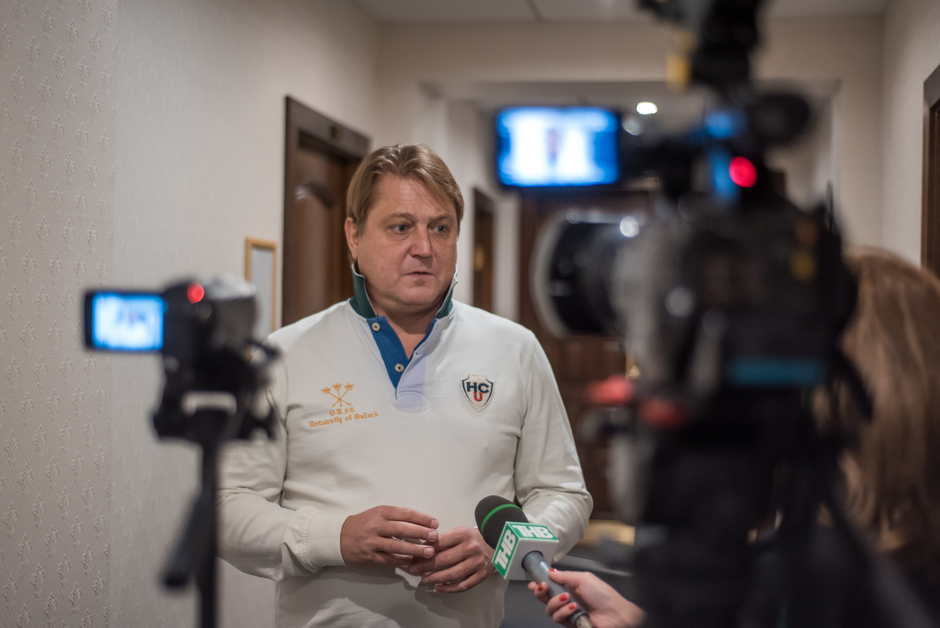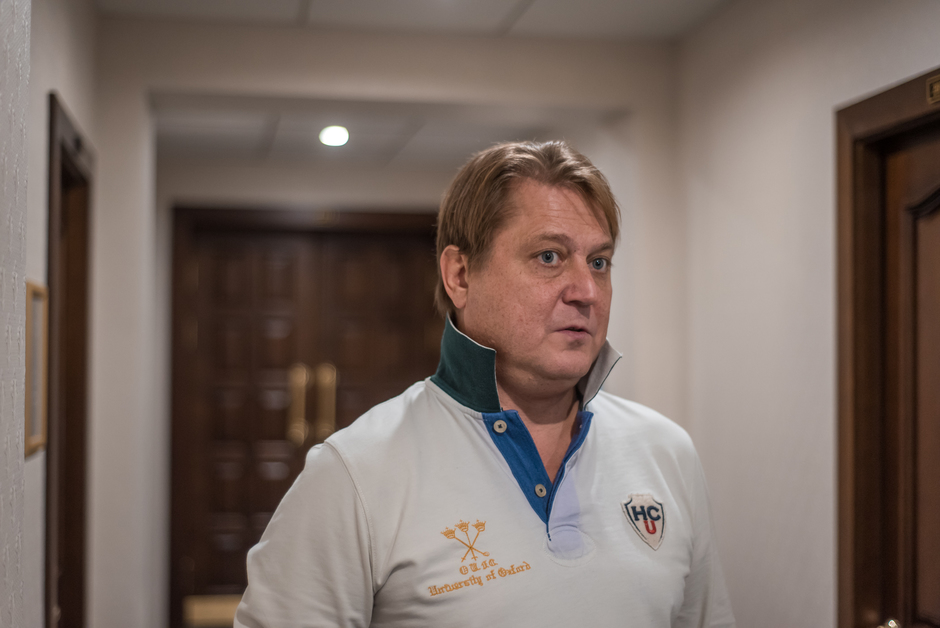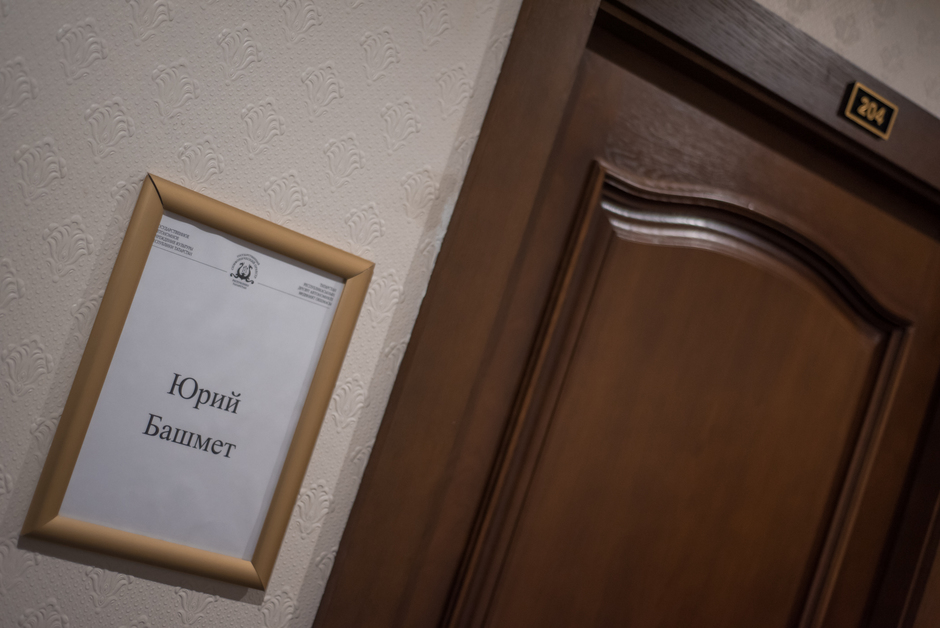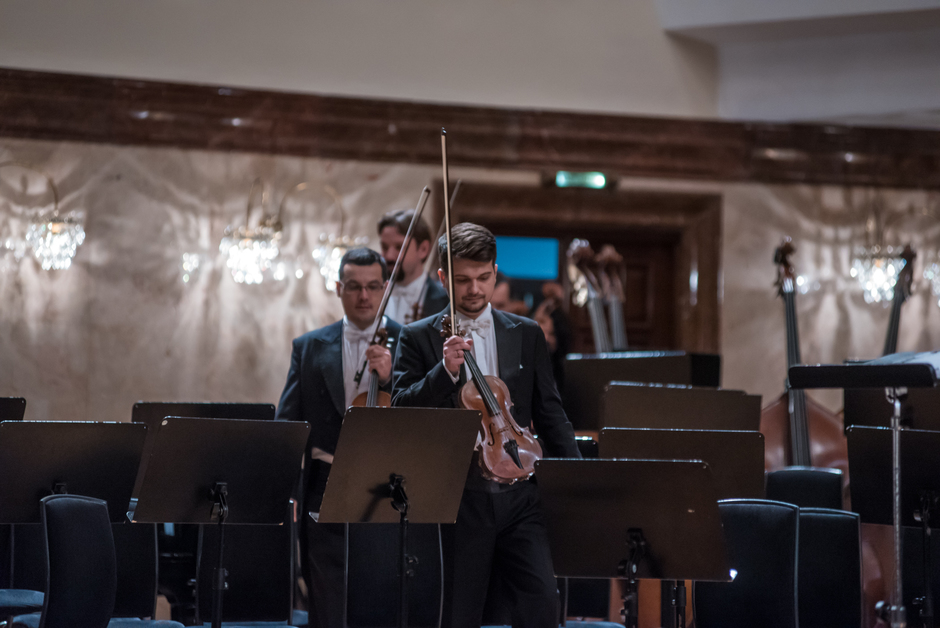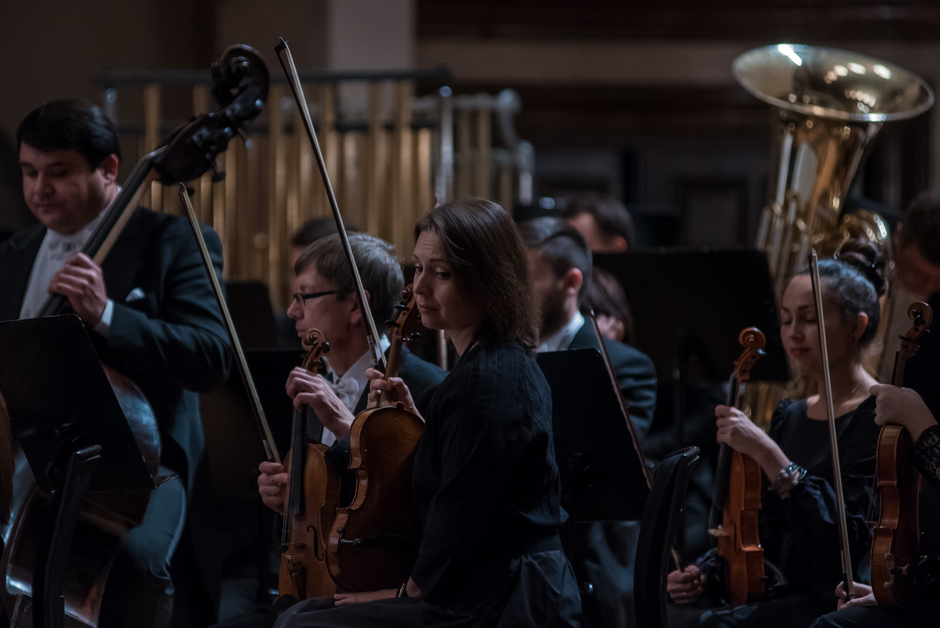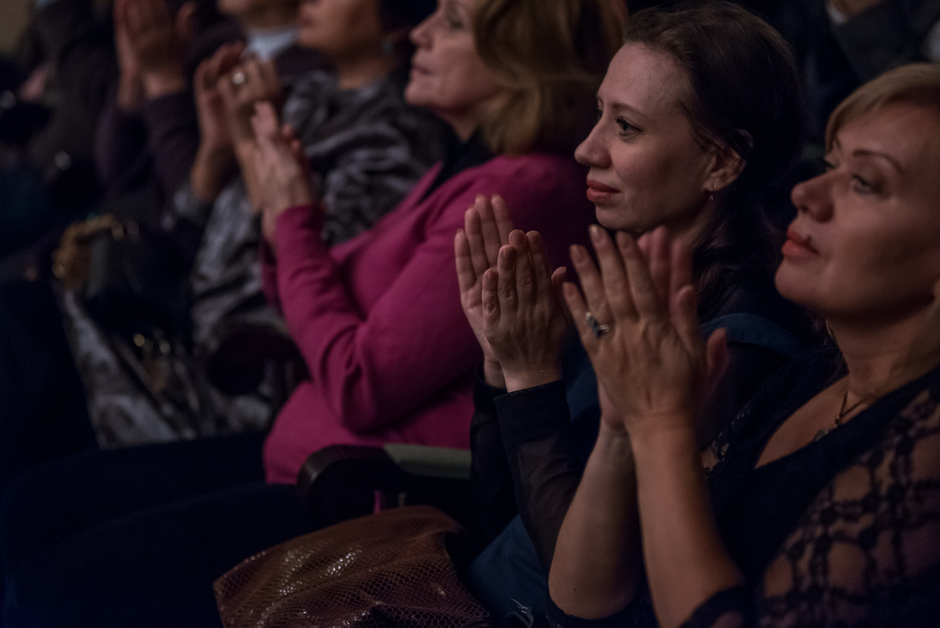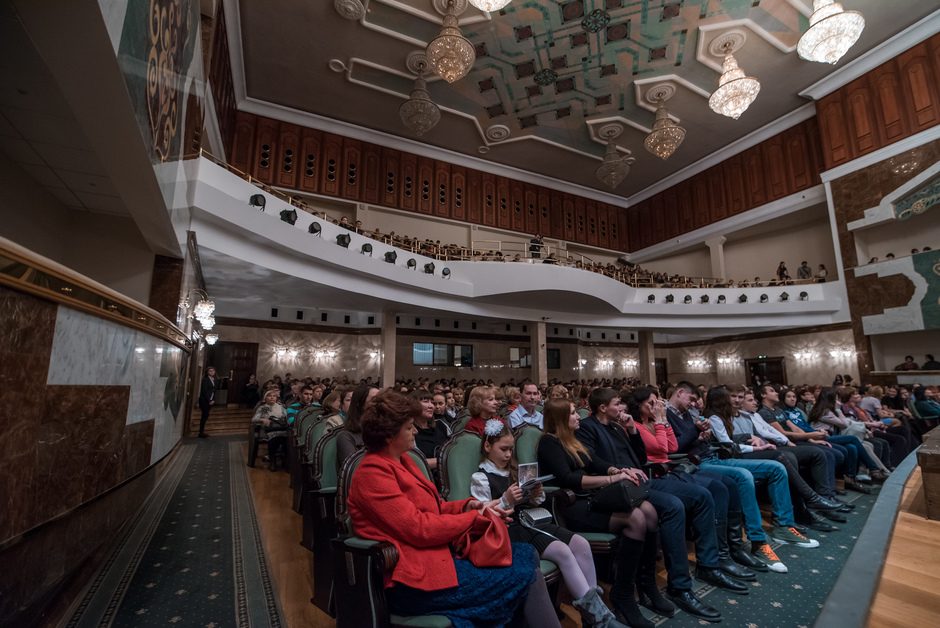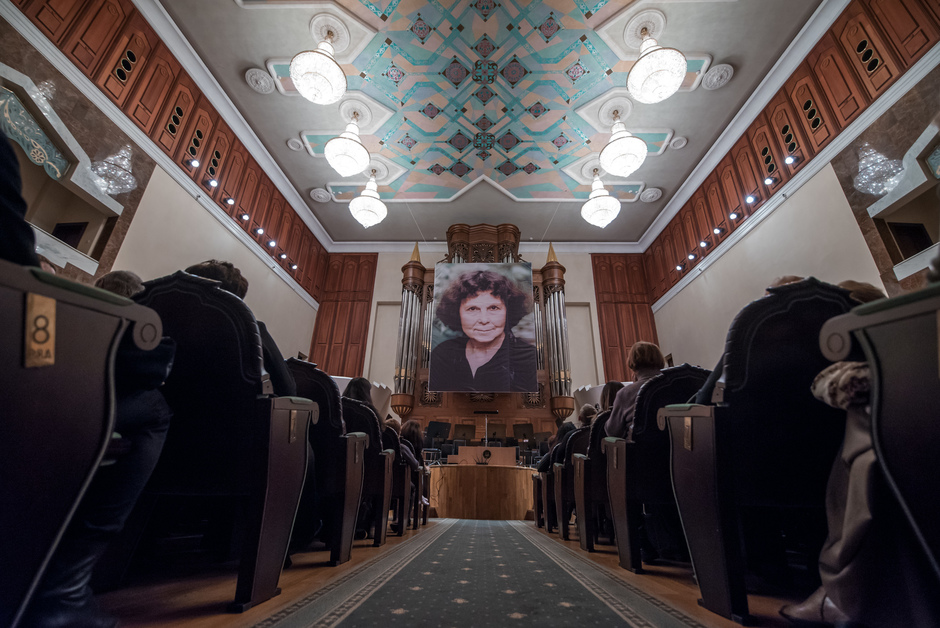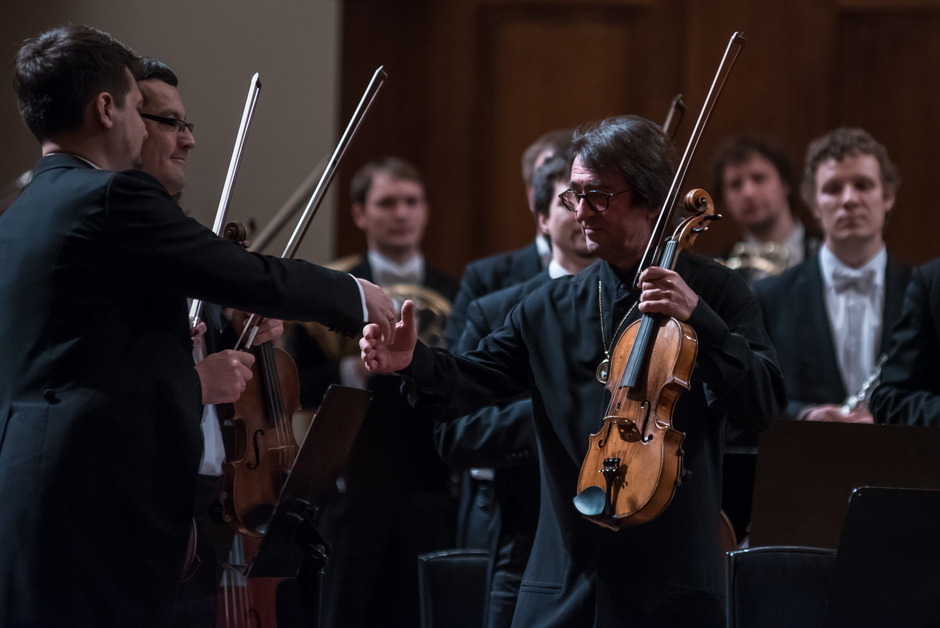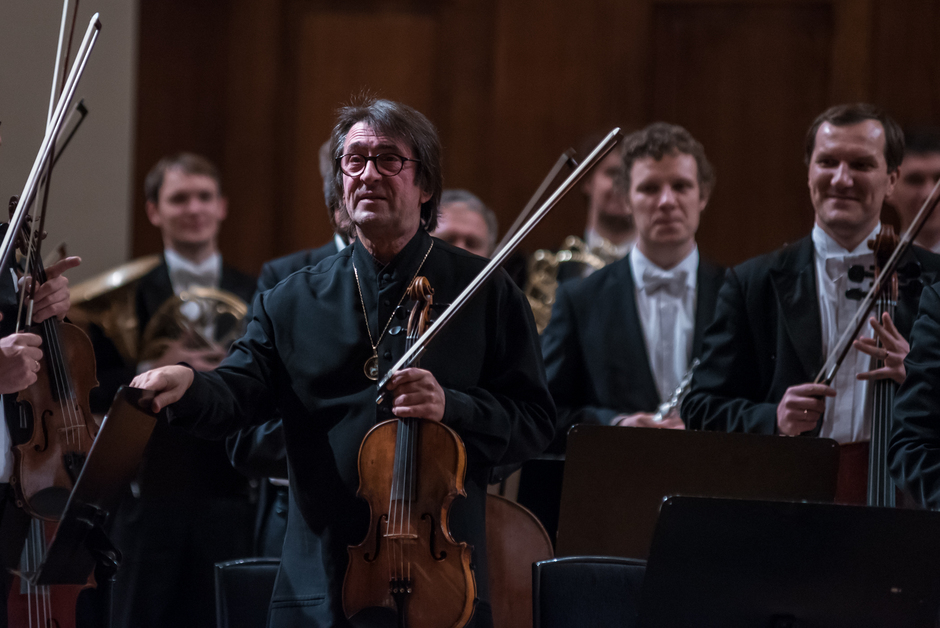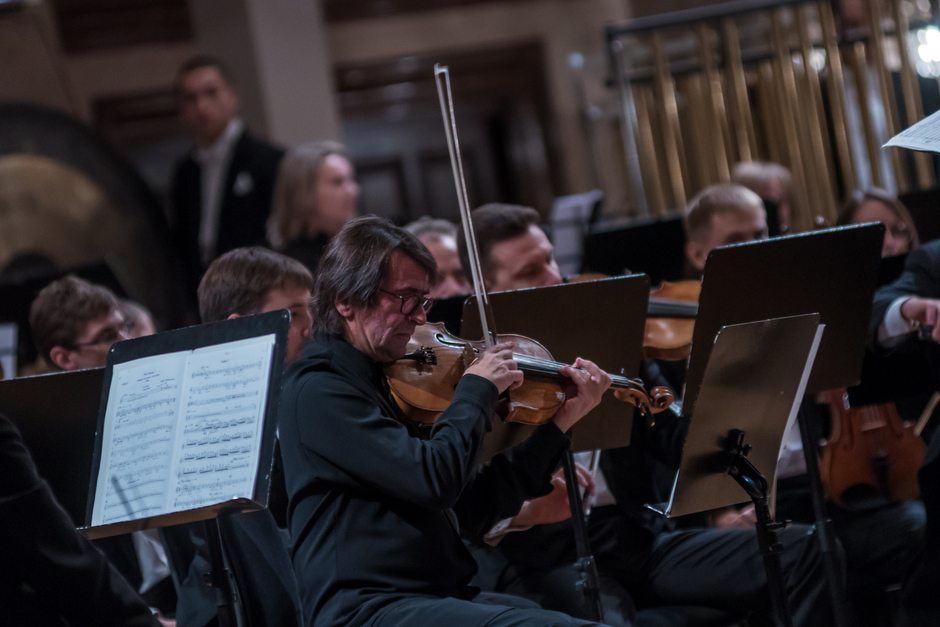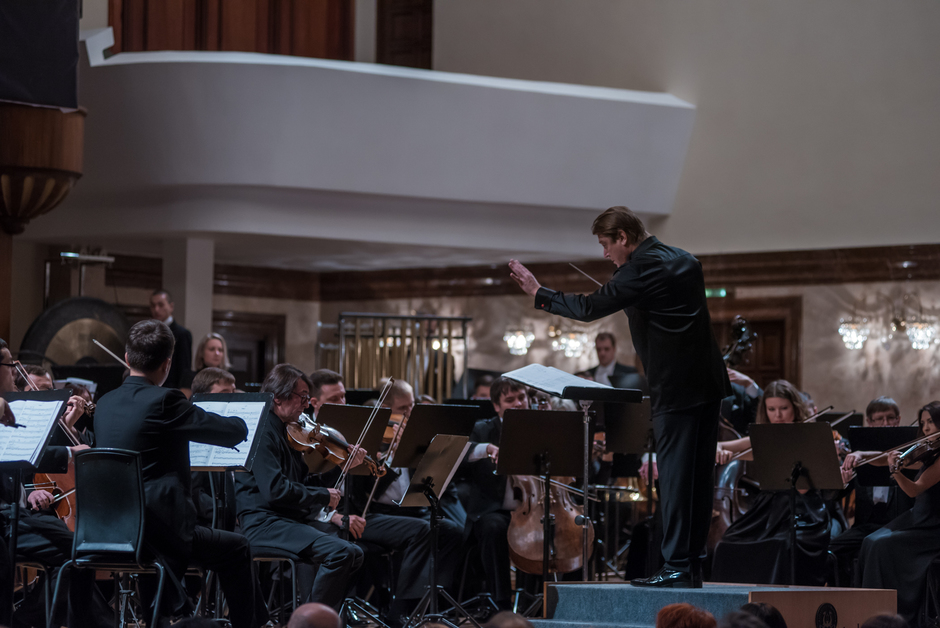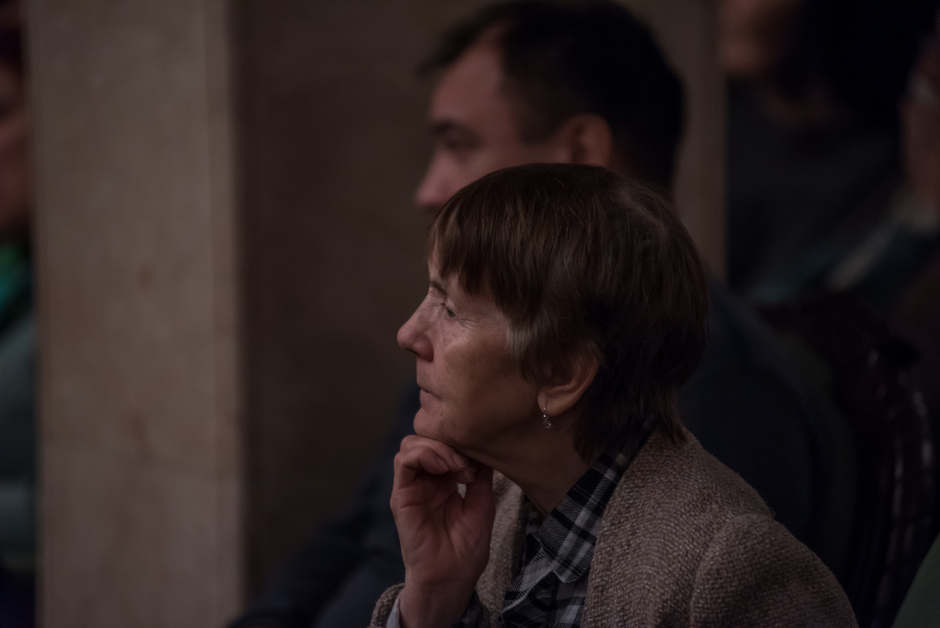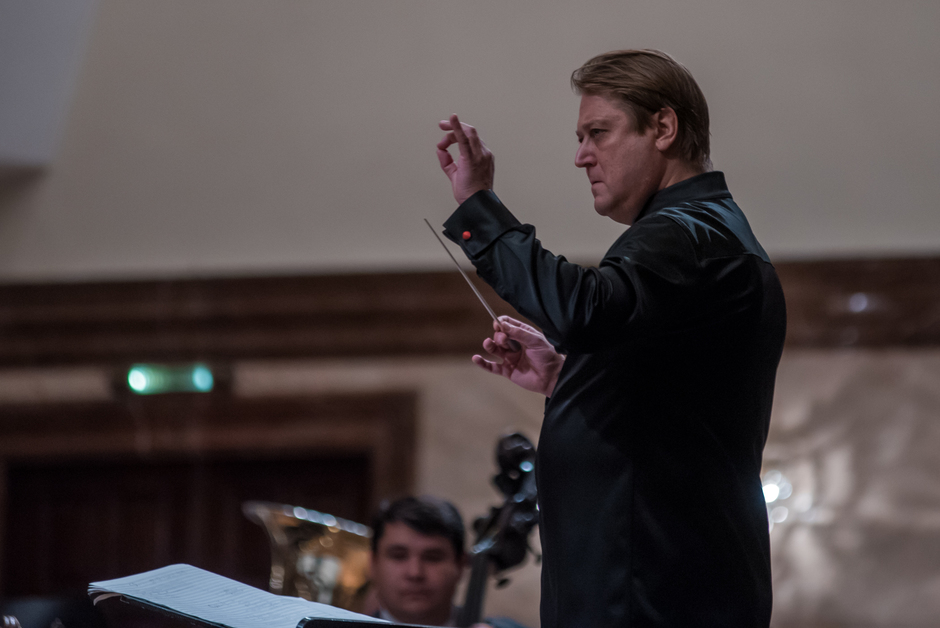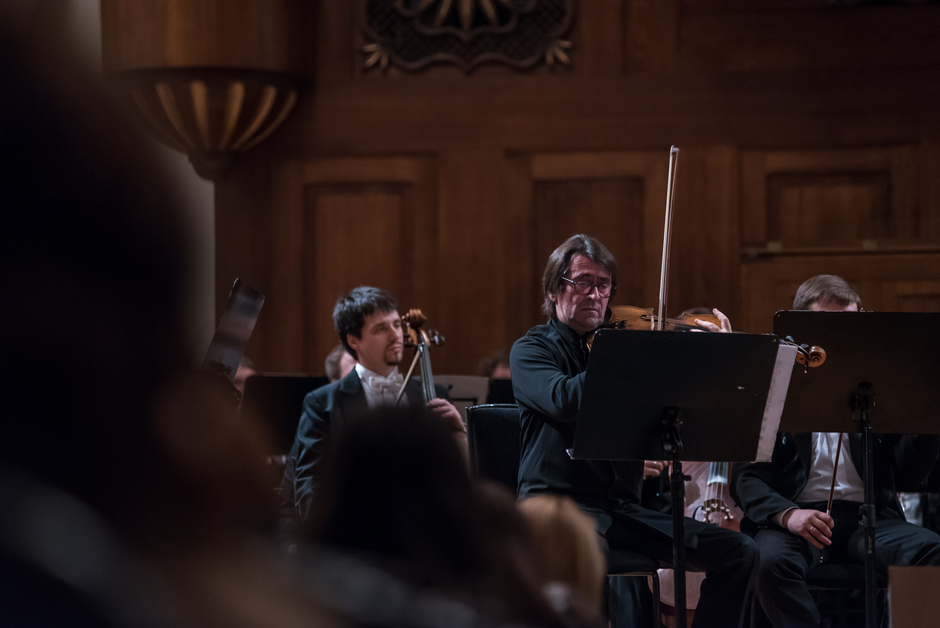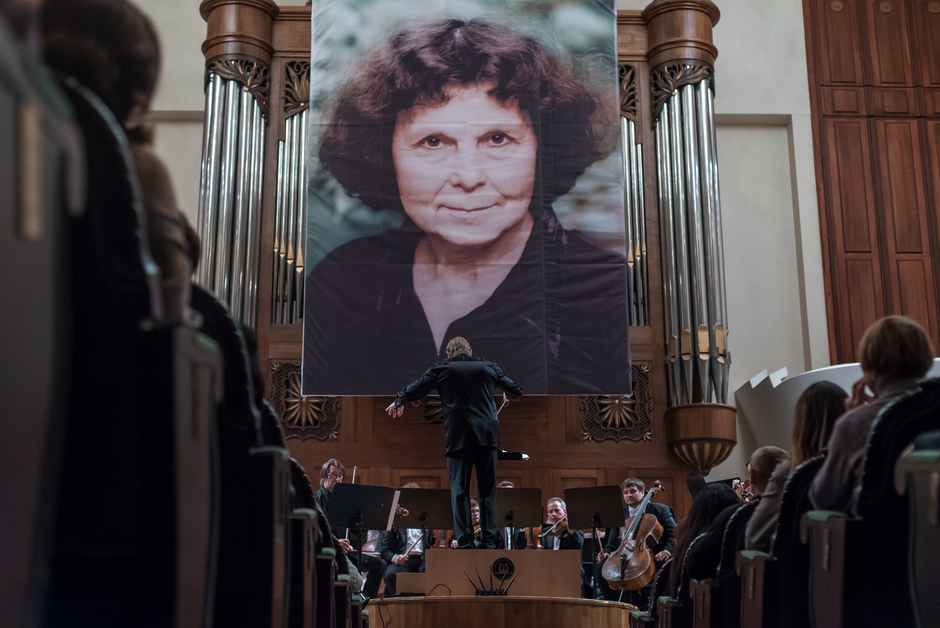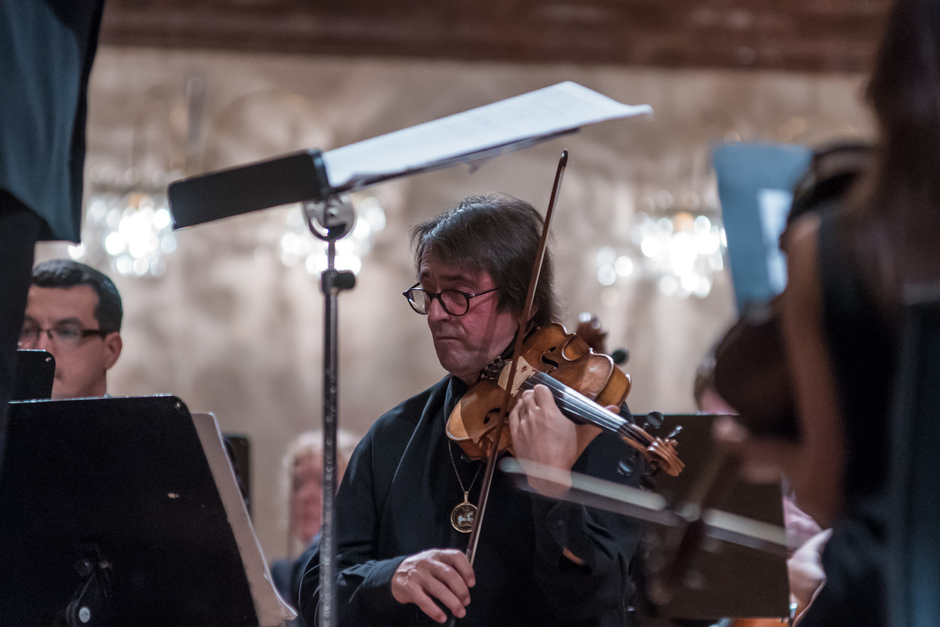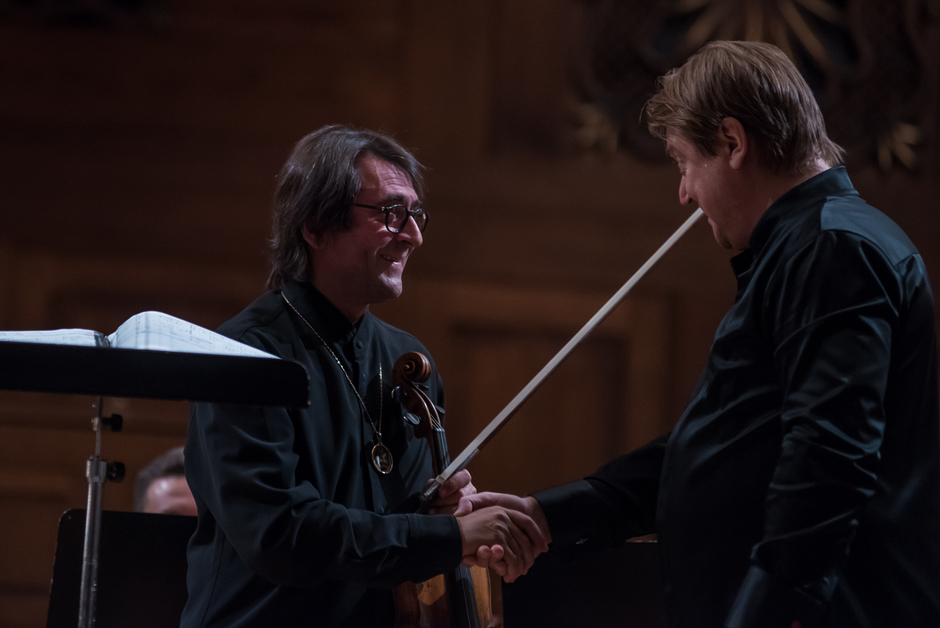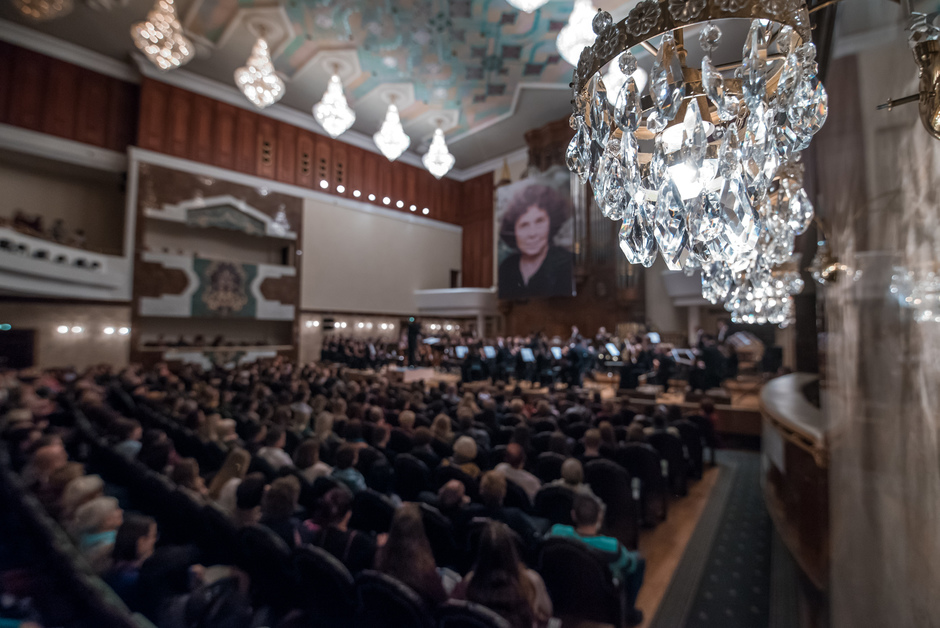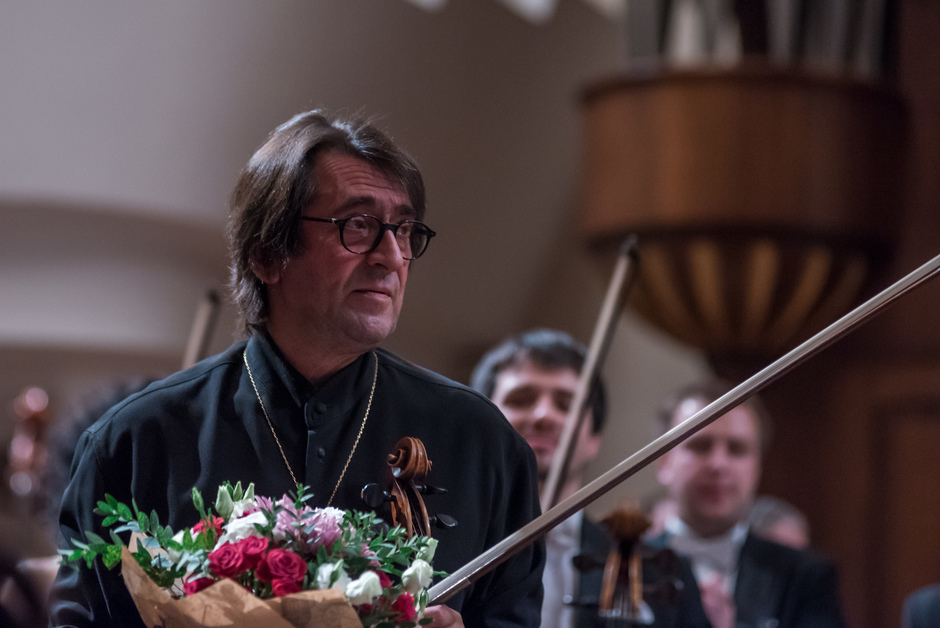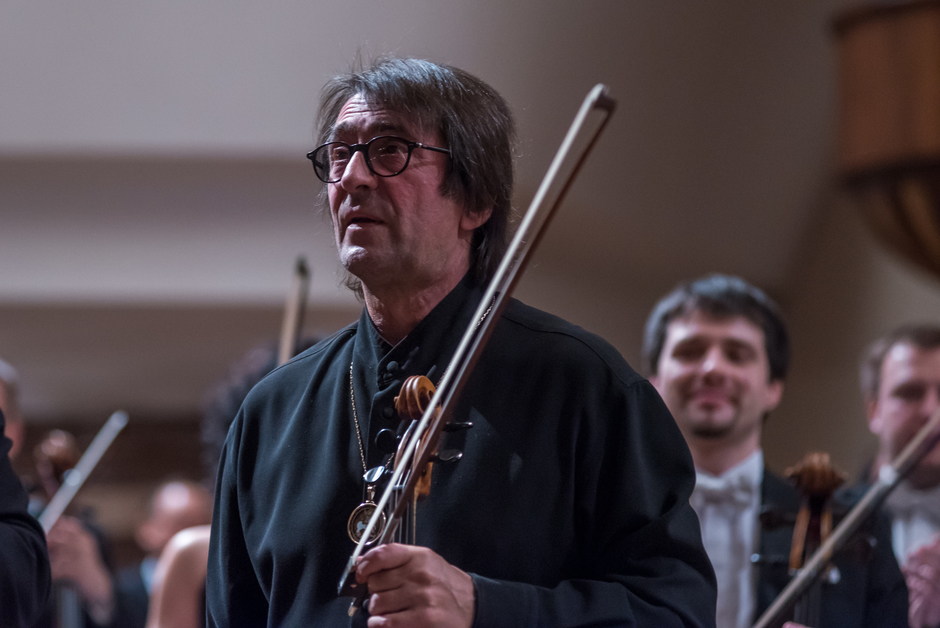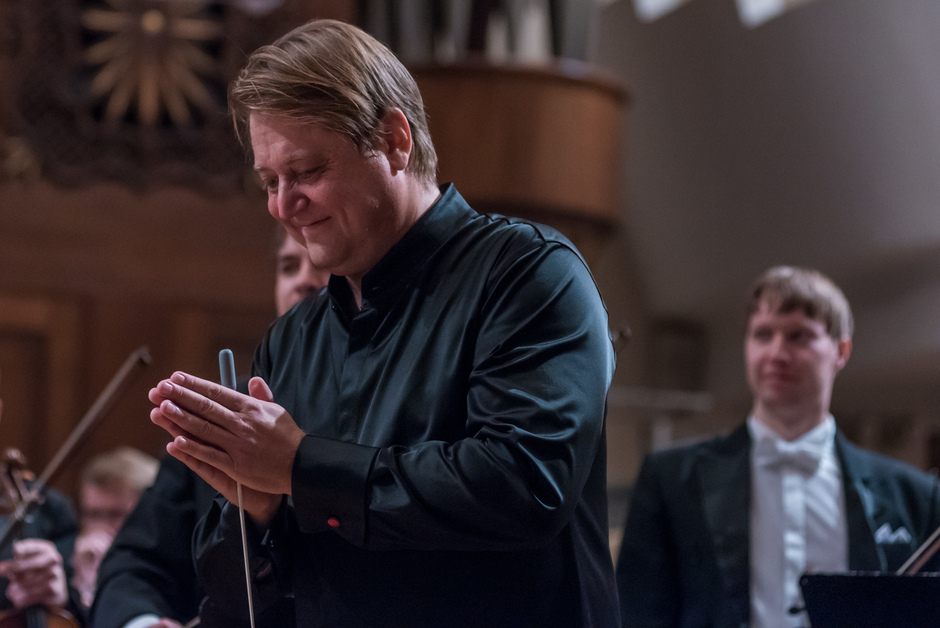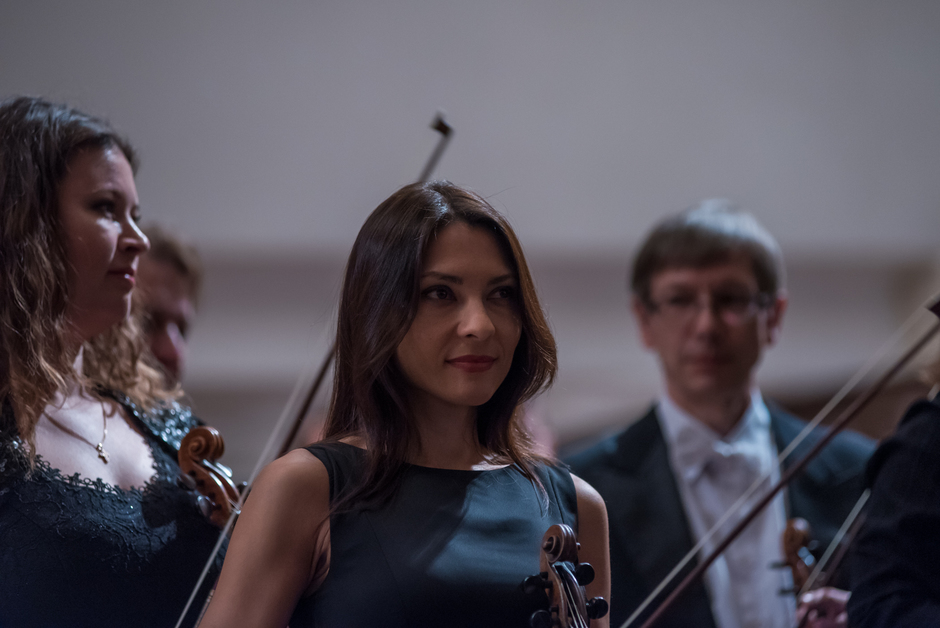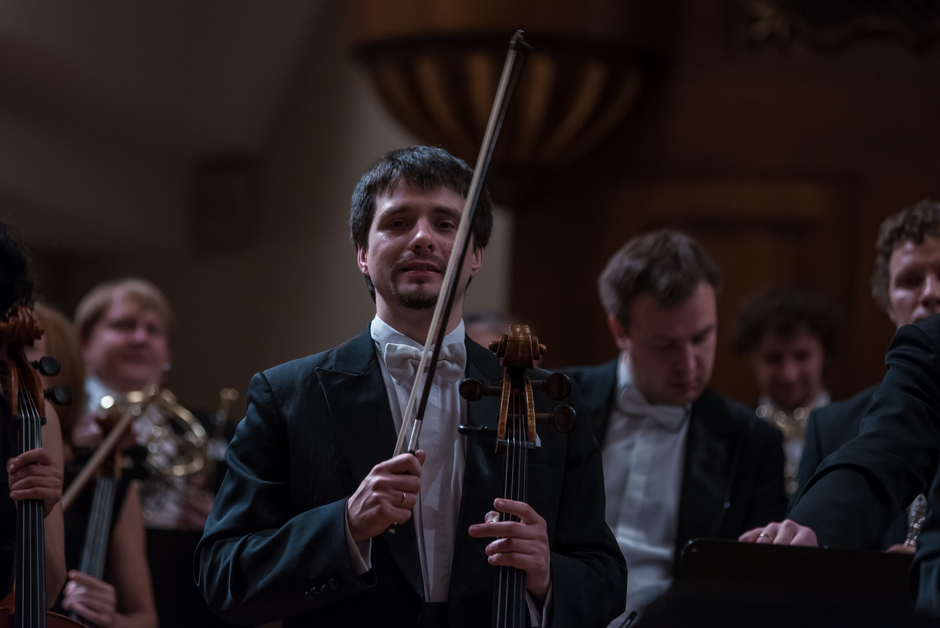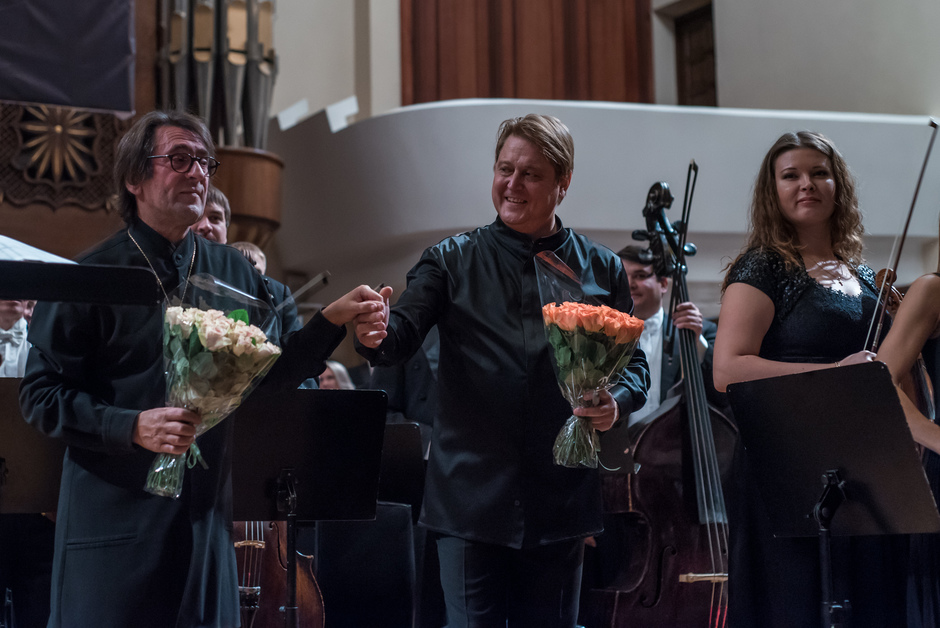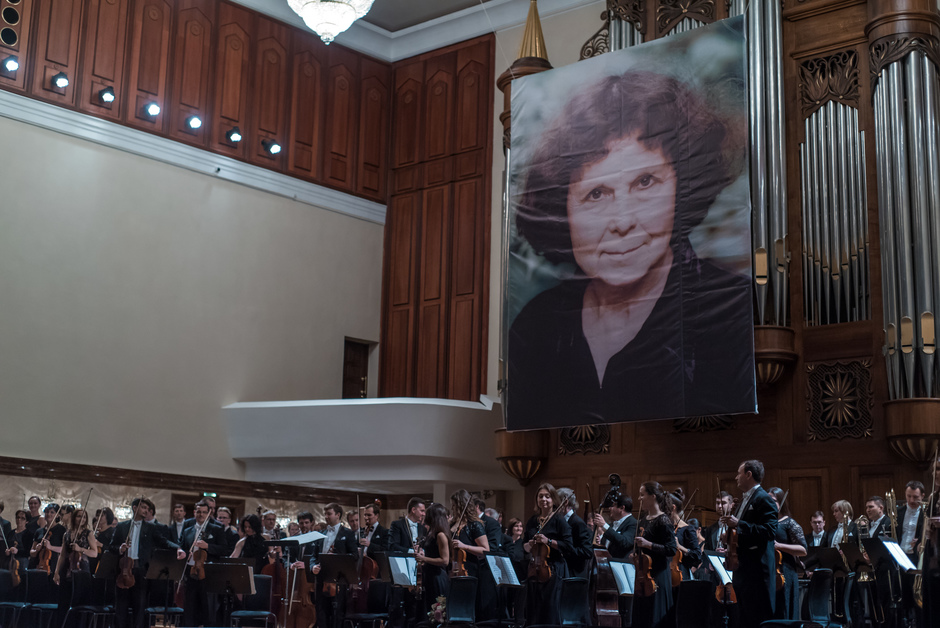Alexander Sladkovsky and Tatarstan National Symphony Orchestra came to ‘Concordia’
The second concert of the international contemporary music festival Concordia has recently taken place in the Saidashev State Great Concert Hall. The concert of the festival named after Sofia Gubaidulina is dedicated to the anniversary of the composer. A few days ago, Sofia Asgatovna celebrated 85-year anniversary, therefore, the program of the concert was consisted entirely of her compositions. The correspondent of Realnoe Vremya visited the main concert hall of the Republic.
Devoted to Bashmet
The Concordia festival has been held in Tatarstan for the sixth time. Six years ago, it was established and initiated by the chief conductor and artistic director of the Tatarstan National Symphony Orchestra Alexander Sladkovsky. It is a bit strange that until then the homeland of world famous composer, whose works are considered to be the honour to play for the best orchestras in the world, had not had such festival…
There were only one-time visits of Gubaidulina to Kazan. Then suddenly, six years ago, there was a man who restored the historical justice, and now every autumn the citizens of Kazan get acquainted not only with the works of Gubaidulina but also with other best examples of modern music. This year is no exception.
The program of the second concert was made up of works of Sofia Azgatovna, and it was dedicated to her 85th anniversary. Not only the chief of the Tatarstan orchestra participated in the program but also an outstanding violist Yury Bashmet. He opened the program.
The concert for viola with the orchestra is a composition of Gubaidulina dedicated to Yury Bashmet. The violist goes on stage, as always in black, in the traditional and stylish round glasses, light, gusty, with his famous instrument of the eighteenth century.
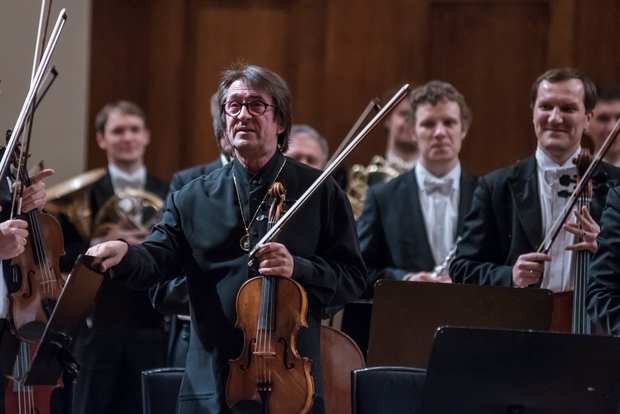
Judging by his body movements, you may think that something light, akin to a pleasure trip, sounds. But how deceptive appearance is! From the first bars of music it is clear that you need to switch on his wave, it is necessary to listen and to catch the secret that is laid in the music of Gubaidulina and what the musician revealed. But he became suddenly closed, mysterious, as he was afraid to spill the opened for him.
This triumvirate that is formed on the stage, Bashmet-Sladkovsky-the orchestra, it is so harmonious, they so understand each other that we, the viewers, seem to be unnecessary, accidental, uninitiated. The sounds are growing like the waves and suddenly there is silence. Through a long pause, the audience breaks into applause.
Fairy tales and nightmares
'Viva Sophia!' wrote on his page on Facebook Alexander Sladkovsky two hours after the concert. The orchestra and the conductor also deserve the same exclamations for their work.
Because the complex, philosophical, apocalyptic music of Gubaidulina was read freely and easily. And it's the top class in the art — to perform difficult things as if being amused. This ease usually precedes by huge, like in the galleys, work.
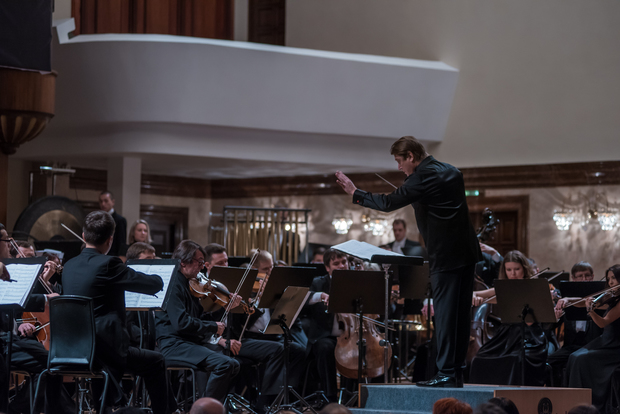
The second part was consisted of the symphonic poem for orchestra Fairy Tale, a composition Concordanza, which means 'Consent', and the compositions for orchestra and organ The rider on the white horse. The latter is dedicated to Valery Gergiev. The organ part was performed by Karina Gorbanova.
Three works — three different philosophical treatises. The illusiveness of the Fairy Tale, where like freezing in the air water, drop by drop, is falling, becoming crystal. Narrativeness of Concordanza, where passion erupts. The rider on the white horse — a nightmare when you want to wake up, but this apparition does not let go.
The complex semantic moves of the composer suddenly become simple and clear, the images are crystally clear, everything is organized in a clear logical chain, where the algebra is combined with harmony.
All the second part, the maestro is similar to a stretched string. On the stage he is a theurgist, he is initiated, his personal merged with the will of the composer. The music of Gubaidulina, in which so many of religiosity comes from the author — this is the text, the monologue with which the conductor turns to the sky, sending love and reverence to heaven. 'God is love', heard from the stage.
The explosive sound of the organ in The rider on the white horse is gradually turning into echo. Temperament, with which Sladkovsky conducts the orchestra to the finale, runs high and suddenly comes a dead silence. The audience do not come to senses immediately, it begins to applaud only after a pause.
I want to believe that the record of this concert will reach the author.
